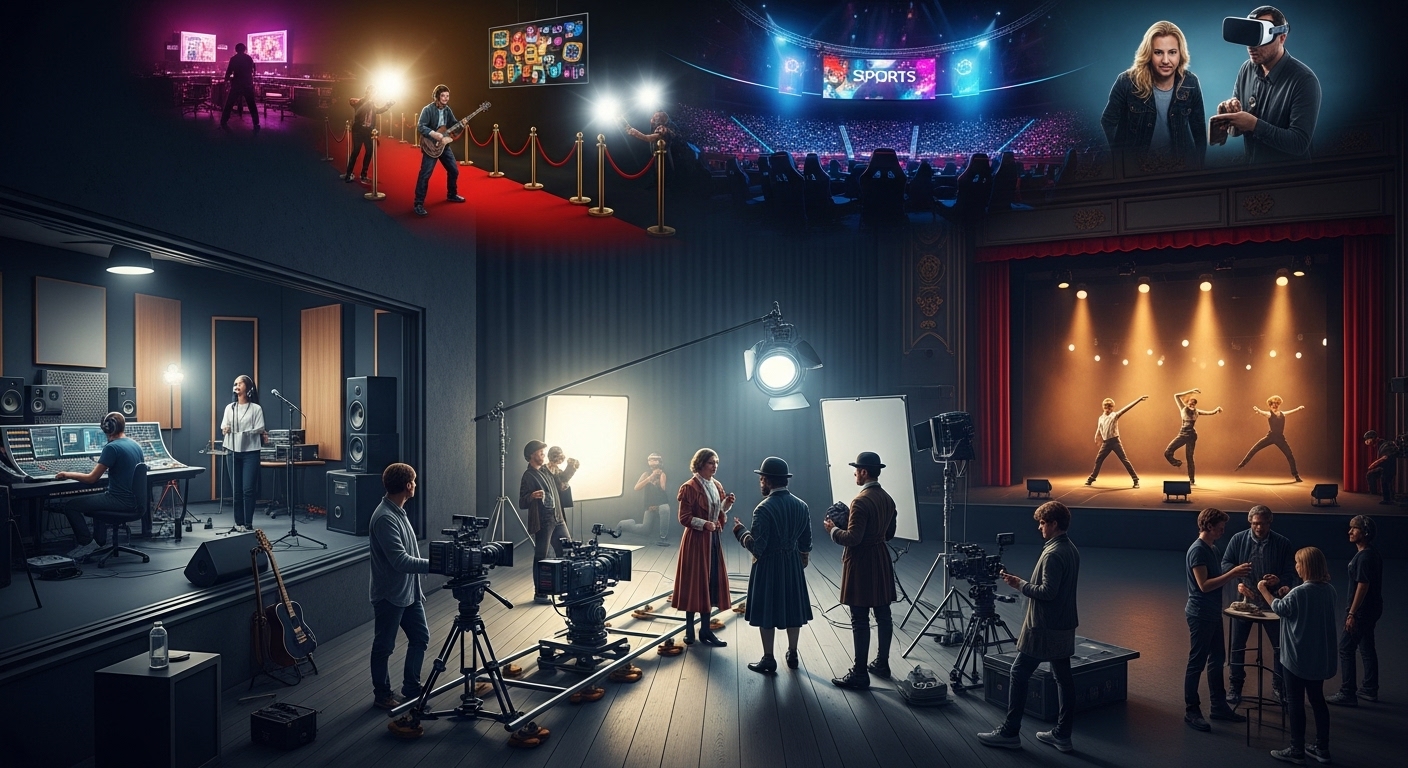Best Remakes That Surpassed Originals

Introduction
The entertainment industry thrives on creativity, innovation, and nostalgia. While new ideas consistently push the boundaries of storytelling and artistry, there is also a deep appreciation for revisiting the classics. Remakes have become a prominent part of film, television, gaming, and even music, as they offer opportunities to bring older works into modern contexts with improved technology, updated narratives, and contemporary sensibilities. However, remakes often face skepticism. Audiences and critics alike ask: can a remake truly live up to the original? In many cases, remakes fail to capture the charm, cultural impact, or emotional resonance of their predecessors.
Yet, there are remarkable instances where remakes not only succeeded but also surpassed the originals. These are the projects that elevated storytelling, refined gameplay, or redefined the cinematic or artistic experience for a new generation. In this blog, we will explore some of the best remakes across different mediums that proved themselves superior to the originals, examining what made them successful and why they continue to stand out.
Why Remakes Exist
Before analyzing the best remakes, it is important to understand why remakes are created. Several motivations drive the decision to reimagine older works.
Nostalgia and Cultural Relevance
Remakes allow creators to revisit stories that hold cultural significance. Nostalgia can draw audiences who fondly remember the original while attracting new audiences unfamiliar with it.
Technological Advancements
With better technology, visual effects, sound design, and interactive capabilities, remakes can enhance the original work in ways that were once impossible.
Artistic Reinterpretation
A remake does not always aim to replicate. Instead, it can offer a new perspective, reimagining characters, settings, or themes in ways that resonate with contemporary sensibilities.
Market Demand
There is also a business factor. Remakes capitalize on existing intellectual property, making them safer investments compared to brand-new stories.
When done well, remakes serve as bridges between generations, keeping stories alive while improving their execution.
What Makes a Remake Successful
Not all remakes surpass the original. The best ones share common qualities that set them apart.
Respect for the Source Material
Successful remakes acknowledge what made the original special. They retain the core themes, characters, or mechanics while enhancing them rather than replacing them entirely.
Improvements and Innovations
A good remake does not just update visuals. It may expand the story, refine pacing, introduce new mechanics, or add depth to characters that were previously underdeveloped.
Balancing Familiarity and Freshness
The challenge lies in balance. Too much adherence to the original risks redundancy, while excessive changes risk alienating loyal fans. The best remakes achieve a sweet spot.
Timeliness
Sometimes, a story is more relevant when retold in a new era. A remake can capture the cultural or social issues of its time better than the original did.
Best Remakes in Film That Surpassed the Originals
The Thing (1982)
John Carpenter’s The Thing is often cited as one of the greatest remakes in film history. The original, The Thing from Another World (1951), was groundbreaking for its time but limited by technology. Carpenter’s version amplified the paranoia, introduced groundbreaking special effects, and created a far darker and more psychologically intense atmosphere. Today, it stands as a masterpiece of horror and science fiction.
The Fly (1986)
The original The Fly (1958) was a classic monster movie of its era. David Cronenberg’s remake transformed it into a body horror masterpiece with a deeper emotional core. By focusing on the human tragedy of transformation, the remake elevated the story from pulp horror to a meditation on mortality, science, and loss.
A Star Is Born (2018)
This story has been remade multiple times, but the 2018 version starring Lady Gaga and Bradley Cooper resonated the most with modern audiences. While earlier versions were iconic in their own right, this remake captured contemporary struggles of fame, addiction, and vulnerability, delivering performances and music that deeply connected with viewers.
Scarface (1983)
The original Scarface (1932) was a landmark crime film, but Brian De Palma’s 1983 remake redefined gangster cinema. With Al Pacino’s unforgettable performance as Tony Montana, the film became a cultural phenomenon. It delivered grittier violence, sharper dialogue, and an unapologetic depiction of ambition and downfall, surpassing its predecessor in influence.
Best Remakes in Television That Surpassed the Originals
Battlestar Galactica (2004)
The original Battlestar Galactica (1978) was beloved for its campy space opera style, but the 2004 reimagining brought depth, political commentary, and darker storytelling. The remake tackled themes of war, identity, and survival in ways the original could not, making it one of the most critically acclaimed science fiction series of its era.
The Office (US)
The British version of The Office (2001) by Ricky Gervais was influential, but it had a limited run and a distinctly dry tone. The US version, launched in 2005, not only expanded the format but also made the characters more relatable and lovable. Over nine seasons, it surpassed the original in popularity, cultural impact, and longevity.
Hawaii Five-0 (2010)
The original series from the 1970s was iconic for its time, but the remake modernized the format with better action, character development, and cinematography. It ran for ten seasons, introducing the franchise to a whole new generation.
Best Remakes in Gaming That Surpassed the Originals
Resident Evil 2 (2019)
The original Resident Evil 2 (1998) was a landmark survival horror game. The remake completely rebuilt the game with modern graphics, refined mechanics, and cinematic storytelling while preserving the essence of the original. It not only improved gameplay but also expanded the narrative, becoming a benchmark for remakes in the gaming industry.
Final Fantasy VII Remake (2020)
The original Final Fantasy VII (1997) is often considered one of the greatest RPGs ever made. Its remake did not merely replicate but reimagined the game with stunning visuals, a new combat system, and expanded storylines. While controversial for some changes, it breathed new life into the franchise and introduced the story to a new audience in ways that surpassed the original experience.
The Legend of Zelda: Link’s Awakening (2019)
The Game Boy original (1993) was a masterpiece for its platform. The 2019 remake maintained the quirky charm but updated it with vibrant, toy-like visuals and refined mechanics. It demonstrated how a faithful yet innovative remake could exceed expectations.
Demon’s Souls (2020)
The original Demon’s Souls (2009) was revolutionary but somewhat limited by technical constraints. The PlayStation 5 remake offered breathtaking visuals and smoother mechanics, making it both a tribute and an improvement that surpassed the original in presentation and performance.
Best Remakes in Music That Surpassed the Originals
Whitney Houston’s “I Will Always Love You”
Originally written and performed by Dolly Parton in 1974, the song was already powerful. However, Whitney Houston’s 1992 rendition for The Bodyguard transformed it into a global anthem. With her unparalleled vocal performance, Houston’s version became definitive, overshadowing the original in cultural impact.
Jimi Hendrix’s “All Along the Watchtower”
Originally written and performed by Bob Dylan in 1967, the song became iconic when Jimi Hendrix covered it in 1968. Hendrix’s electric guitar mastery redefined the track, and even Dylan himself acknowledged Hendrix’s version as the superior interpretation.
Jeff Buckley’s “Hallelujah”
Leonard Cohen’s original Hallelujah (1984) was poignant, but Jeff Buckley’s 1994 cover elevated it with haunting beauty and emotional depth. Buckley’s rendition has become the definitive version in the eyes of many listeners.
Why Some Remakes Surpass Originals
The remakes that surpass their predecessors succeed because they strike a balance between respect and reinvention. They preserve what made the original work meaningful while pushing boundaries in storytelling, performance, and technology. They are not content with replication; they strive for transformation.
Additionally, remakes often benefit from hindsight. Creators can study the original’s strengths and weaknesses, ensuring that the remake capitalizes on opportunities for improvement. Coupled with modern tools, remakes can accomplish what was once impossible.
Criticism and Challenges of Remakes
Despite their successes, remakes also face challenges. Many audiences remain skeptical, fearing that beloved classics will be tarnished. Some remakes do indeed fail, either by deviating too far from the source or by failing to innovate meaningfully. The difference between success and failure lies in intent and execution.
When done with genuine respect and creativity, a remake can exceed expectations. When done purely for profit or without artistic vision, it often fails.
Conclusion
Remakes are an enduring part of entertainment, offering a bridge between past and present. While many fall short, there are outstanding examples that surpass the originals in artistry, relevance, and cultural impact. From films like The Thing and Scarface to games like Resident Evil 2 and Final Fantasy VII Remake, these works demonstrate how remakes can refine, reimagine, and elevate stories for new audiences.
Ultimately, the best remakes remind us that great stories are timeless. When retold with care, creativity, and innovation, they can transcend their origins, becoming even greater than before.
